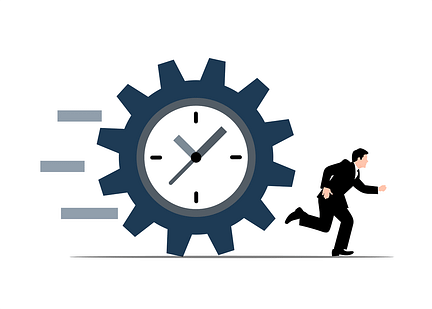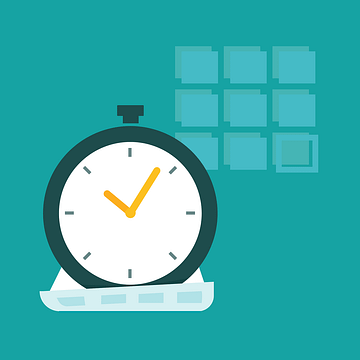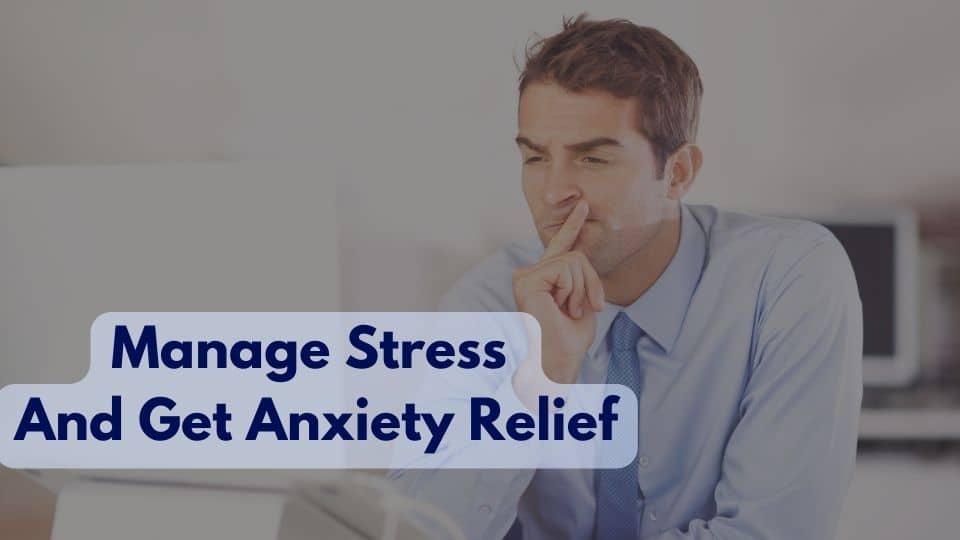Feeling overwhelmed and stressed out by the demands of everyday life is something we can all relate to. We often find ourselves asking the question, “How Can I Manage Stress And Get Anxiety Relief?” It’s a valid concern and one that deserves our attention.
In this article, we will explore some practical strategies and techniques that can help you navigate through the challenges of stress and anxiety relief allowing you to find inner peace and restore balance in your life. So, if you’re ready to take control of your well-being and embark on a journey towards a healthier, happier you, read on to discover some helpful tips and tricks.
Understanding Stress and Anxiety
Stress and anxiety are common experiences that everyone faces at some point in their lives. Although they are often used interchangeably, it’s important to understand the differences between the two. Stress is a natural response to a challenging or demanding situation, while anxiety is a more prolonged and intense feeling of worry or fear.
Differentiating Between Stress and Anxiety
Stress is typically caused by external factors such as work deadlines, financial issues, or relationship problems. It is a normal and often necessary response to these situations, helping us to stay alert and focused. However, when stress becomes chronic or overwhelming, it can lead to anxiety.
Anxiety, on the other hand, is characterized by persistent worry and fear that may not have a specific trigger or cause. It can manifest as generalized anxiety disorder (GAD), panic disorder, social anxiety disorder, or specific phobias. Unlike stress, anxiety is not always proportional to the situation and can significantly interfere with daily activities.
Causes of Stress and Anxiety
Stress and anxiety can be caused by a variety of factors. Common causes of stress include workload, financial difficulties, major life changes, and relationship problems. Anxiety, on the other hand, can be caused by a combination of genetic, environmental, and psychological factors. Traumatic events, chronic illnesses, and certain medications can also contribute to anxiety disorders.
The Impact of Stress and Anxiety on Health
Both stress and anxiety can have a significant impact on our physical and mental health. Prolonged stress can lead to a weakened immune system, increased blood pressure, and a higher risk of heart disease. It can also cause symptoms such as headaches, muscle tension, and gastrointestinal problems.
Anxiety, if left untreated, can lead to chronic anxiety disorders and can exacerbate existing health conditions. It can contribute to the development of depression, insomnia, and substance abuse. Recognizing the signs and symptoms of stress and anxiety is crucial in order to seek appropriate help and support.
Recognizing the Signs and Symptoms
Signs and symptoms of stress and anxiety can manifest in different ways. It’s important to be aware of these symptoms in order to effectively manage and seek help when needed. The symptoms can be categorized into physical, emotional, cognitive, and behavioral.
Physical Symptoms
Physical symptoms of stress and anxiety may include headaches, muscle tension, fatigue, sleep disturbances, and changes in appetite. You may also experience digestive issues, such as stomachaches or gastrointestinal problems. Paying attention to these physical signs can help you identify and manage stress and anxiety effectively.
Emotional Symptoms
Emotional symptoms of stress and anxiety can manifest as irritability, mood swings, restlessness, and feeling overwhelmed. You may also experience a sense of dread or fear, difficulty concentrating, and a constant feeling of being on edge. Recognizing these emotional symptoms can help you take action to alleviate stress and anxiety.
Cognitive Symptoms
Cognitive symptoms include racing thoughts, difficulty making decisions, and a tendency to focus on the negative aspects of situations. You may also experience memory problems, a lack of concentration, and repetitive or obsessive thinking. Being aware of these cognitive symptoms can help you implement strategies to cope with stress and anxiety effectively.
Behavioral Symptoms
Behavioral symptoms of stress and anxiety can include changes in eating or sleeping patterns, withdrawal from social activities, increased use of alcohol or drugs, and restlessness or pacing. It’s important to notice these behavioral changes and address them in order to promote overall well-being.

This image is property of pixabay.com.
Seeking Professional Help
While it’s normal to experience stress and anxiety from time to time, there may be situations where professional help is necessary. Therapists and counselors play a crucial role in helping individuals manage and overcome stress and anxiety.
Understanding the Role of Therapists and Counselors
Therapists and counselors are trained professionals who specialize in helping individuals cope with and overcome mental health challenges. They provide a safe and non-judgmental space for individuals to explore their feelings, thoughts, and behaviors. Therapists can help identify triggers, develop coping strategies, and anxiety relief, and provide valuable support.
When to Seek Professional Help
If you find that stress and anxiety are significantly impacting your daily life and functioning, it may be time to seek professional help. Some signs that indicate the need for professional assistance include persistent worry or fear, difficulty managing stress, impaired social or occupational functioning, and physical symptoms that interfere with daily activities. Remember, reaching out for help is a sign of strength, and seeking professional guidance can make a significant difference in managing stress and anxiety effectively.
Various Therapy Options Available
There are various therapy options available to help individuals manage stress and anxiety. Cognitive-behavioral therapy (CBT) is a widely used approach that focuses on identifying and changing negative thought patterns and behaviors. Other therapy options include mindfulness-based techniques, such as mindfulness-based stress reduction (MBSR), and relaxation techniques like progressive muscle relaxation. The choice of therapy will depend on your individual needs and preferences, and a therapist can guide you in selecting the most appropriate approach.
Lifestyle Changes to Reduce Stress and Anxiety
In addition to seeking professional help, incorporating lifestyle changes into your daily routine can significantly reduce stress and anxiety levels. Here are some effective strategies to consider:
Managing Time Effectively
One of the leading causes of stress is feeling overwhelmed by a lack of time. By managing your time effectively, you can regain control and reduce stress levels. Prioritize tasks, delegate when necessary, and set realistic goals. Use time-management techniques, such as creating to-do lists or using a planner, to help stay organized and ensure you have enough time for self-care and relaxation.
Maintaining a Healthy Lifestyle
A healthy lifestyle plays a crucial role in managing stress and anxiety. Focus on eating a balanced diet, exercising regularly, and getting enough sleep. Avoid excessive alcohol consumption and limit your intake of caffeine, as these substances can exacerbate symptoms of anxiety. By taking care of your physical health, you are better equipped to handle stressors.
Prioritizing Self-Care
Self-care is essential for managing stress and anxiety effectively. Set aside time each day to engage in activities that bring you joy and help you relax. This can include hobbies, spending time with loved ones, reading, or practicing mindfulness techniques. Remember that self-care is not selfish; it is necessary for your overall well-being.
Engaging in Relaxation Techniques
Relaxation techniques can help calm your mind and reduce stress and anxiety. Deep breathing exercises, such as diaphragmatic breathing or box breathing, can be done anywhere and anytime. Progressive muscle relaxation involves systematically tensing and relaxing different muscle groups to promote relaxation. Guided imagery and visualization exercises can also be effective in reducing stress levels.

This image is property of pixabay.com.
Building Supportive Relationships
Having a strong support system is crucial in managing stress and anxiety effectively. Here’s how you can build supportive relationships:
Seeking Support from Friends and Family
Reach out to your friends and family members for support for anxiety relief. Share your feelings and concerns with them, and allow them to provide comfort and reassurance. Sometimes, just talking to someone you trust and who understands can make a world of difference in alleviating stress and anxiety.
Joining Support Groups
Consider joining support groups or online communities that focus on stress and anxiety. Connecting with others who are going through similar experiences can provide a sense of validation and support. These groups often offer a platform for sharing coping strategies and seeking advice, which can be invaluable in managing stress and anxiety.
Eliminating Toxic Relationships
Evaluate your relationships and identify any toxic or negative influences in your life. Surround yourself with positive and supportive individuals who uplift and encourage you. Let go of toxic relationships that contribute to your stress and anxiety, and prioritize spending time with those who bring positivity into your life.
The Importance of Communication
Healthy communication is key to building supportive relationships. Express your needs, boundaries, and concerns openly and honestly with your loved ones. Effective communication can help reduce misunderstandings, resolve conflicts, and strengthen relationships, all of which contribute to a healthier and less stressful life.
Also Check: What Are Some DIY Hair Masks For Healthy And Shiny Hair?
Coping Strategies for Stress and Anxiety
In addition to professional help and lifestyle changes, there are various coping strategies that can help you manage stress and anxiety effectively:
Breathing Exercises
Deep breathing exercises can activate the body’s relaxation response, calming the mind and reducing stress and anxiety. Practice diaphragmatic breathing or other breathing techniques regularly to promote relaxation and emotional well-being.
Practicing Mindfulness and Meditation
Mindfulness and meditation techniques can help you stay present and focus on the present moment, reducing stress and anxiety. Incorporate mindfulness into your daily routine by engaging in activities such as mindful eating, mindful walking, or body scan meditations.
Engaging in Regular Exercise
Physical activity is a natural stress and anxiety reliever. Engaging in regular exercise releases endorphins and boosts mood. Find an exercise routine that suits your preferences, whether it’s going for a run, practicing yoga, or taking dance classes. Aim for at least 30 minutes of exercise most days of the week.
Using Stress-Relief Techniques
Explore stress-relief techniques such as aromatherapy, listening to soothing music, journaling, or engaging in creative activities. Discover what activities bring you joy and help you relax, and make them a regular part of your routine to reduce stress and anxiety.
Implementing Stress Management Techniques
Incorporating stress management techniques into your daily life can help you better cope with stress and anxiety. Here are some effective strategies to consider:
Time Management Techniques
Manage your time effectively by setting realistic goals, prioritizing tasks, and breaking them down into smaller, manageable steps. Avoid procrastination and practice being organized to reduce stress levels.
Setting Realistic Goals
Setting realistic and achievable goals can help you stay focused and reduce stress. Break larger tasks into smaller milestones and celebrate your progress along the way. Be kind to yourself and recognize that perfection is not necessary.
Organizing and Decluttering
An organized environment promotes a calm and focused mind. Take the time to declutter your physical space, whether it’s your home, office, or digital devices. Organizational systems and a clean space can help reduce stress and increase productivity.
Developing Healthy Coping Mechanisms
Identify healthy coping mechanisms that work for you. This can include deep breathing, practicing mindfulness, engaging in physical activity, or talking to a trusted friend or family member. Develop a toolbox of coping strategies that you can rely on during times of stress and anxiety.
Embracing Positive Thinking
Positive thinking plays a vital role in managing stress and anxiety. Here are some strategies to embrace positive thinking:
Challenging Negative Thoughts
Challenge negative thoughts and replace them with more positive and realistic ones. Practice reframing negative situations by looking for positive aspects or growth opportunities. This can help shift your perspective and reduce stress and anxiety.
Practicing Gratitude
Cultivate gratitude by focusing on the positive aspects of your life. Take time each day to reflect on things you are thankful for, whether it’s the support of loved ones, good health, or simple pleasures. Gratitude practice can shift your mindset and promote a more positive outlook.
Visualizing Success
Visualize success and positive outcomes to reduce stress and increase confidence. Create mental images of achieving your goals and facing challenges with resilience and success. Visualization techniques can help reduce anxiety and increase motivation.
Affirmations and Self-Talk
Use positive affirmations and self-talk to reinforce positive beliefs and boost self-confidence. Repeat affirmations such as “I am capable and resilient,” or “I can handle whatever comes my way.” Practice positive self-talk regularly to reduce stress and anxiety.
Using Relaxation and Mindfulness Apps
Technology can also be a valuable tool in managing stress and anxiety. Here are some popular apps that can help you relax and practice mindfulness:
Exploring Popular Apps
Explore popular apps such as Calm, Headspace, or Insight Timer, which offer a wide range of guided meditations, relaxation exercises, and sleep aids. These apps often provide personalized features and resources to help you manage stress and anxiety relief.
Guided Meditation and Breathing Apps
Guided meditation and breathing apps, such as Breathe2Relax or Buddhify, can guide you through mindfulness exercises and deep breathing techniques. These apps can be a convenient way to incorporate relaxation and mindfulness into your daily routine.
Stress Management and Anxiety Relief Apps
Specific stress management and anxiety relief apps, like Pacifica or Sanvello, focus on providing tools and techniques to manage symptoms and track progress. These apps often include mood-tracking features, cognitive behavioral therapy exercises, and relaxation techniques.
Sleep and Relaxation Apps
Sleep and relaxation apps, such as Sleep Cycle or Relax Melodies, offer soothing sounds, guided sleep meditations, and white noise options to promote a restful night’s sleep. These apps can help you unwind and create a peaceful sleep environment.
Incorporating Stress-Reducing Activities into Daily Routine
Here are some activities to consider:
Engaging in Creative Outlets
Engage in creative activities that help you with anxiety relief and express yourself. This can include painting, writing, playing a musical instrument, or cooking. These activities can serve as a form of self-expression and provide a sense of accomplishment and stress relief.
Spending Time in Nature
Nature has a calming effect on the mind and body. Spend time outdoors, whether it’s going for a walk in the park, hiking in the mountains, or visiting a nearby beach. Connecting with nature can reduce stress, increase relaxation, and promote a sense of well-being.
Practicing Yoga or Tai Chi
Yoga and Tai Chi are mind-body practices that combine physical movements with mindfulness and deep breathing. These practices help reduce stress, increase flexibility and strength, and promote overall Anxiety Relief. Incorporate regular yoga or Tai Chi sessions into your routine to manage stress and anxiety effectively.
Listening to Soothing Music
Music has a powerful impact on our emotions. Create a playlist of soothing and calming music that helps you with Anxiety Relief. Whether it’s classical, instrumental, or natural sounds, listening to music can reduce stress and anxiety and promote relaxation.
Conclusion
Managing stress and anxiety effectively requires a multi-faceted approach. By understanding the differences between stress and anxiety, recognizing the signs and symptoms, seeking professional help when needed, implementing lifestyle changes, building supportive relationships, and utilizing coping strategies and stress management techniques, you can effectively manage stress and anxiety and enhance your overall well-being.
Remember, it’s important to prioritize self-care, embrace positive thinking, and incorporate relaxation and mindfulness into your daily routine. With the right tools and support, you can navigate stress and anxiety more effectively and live a happier, healthier life.






